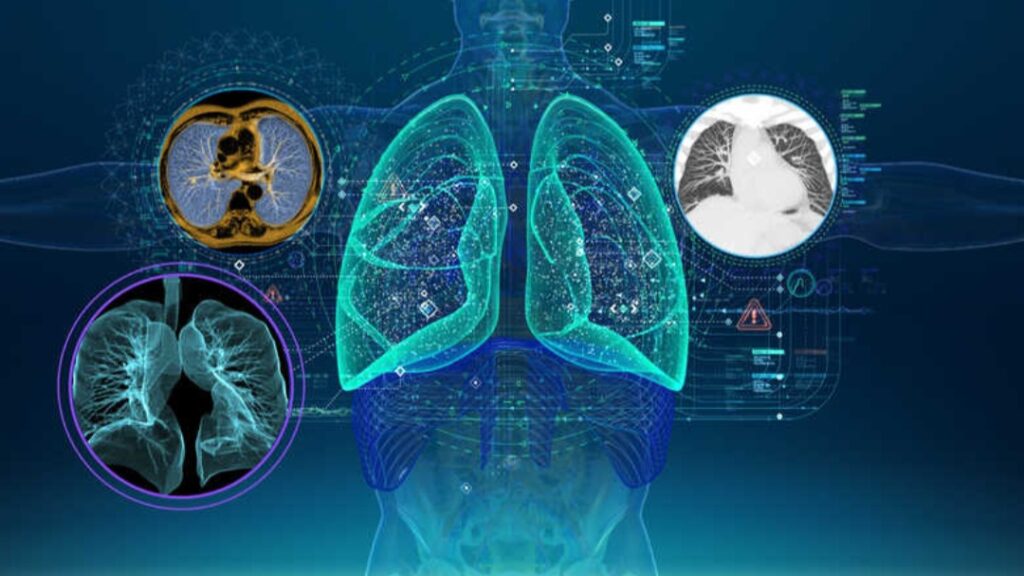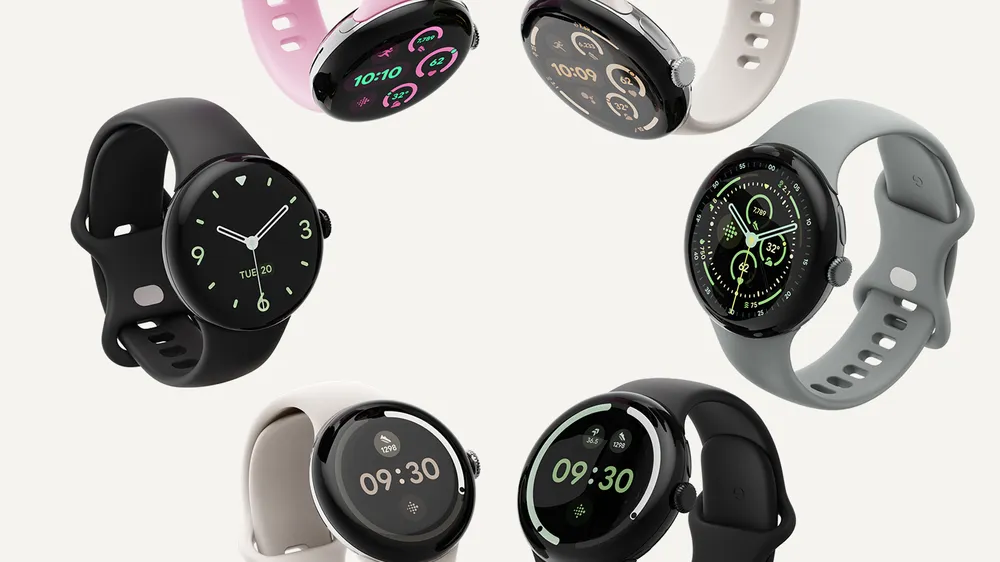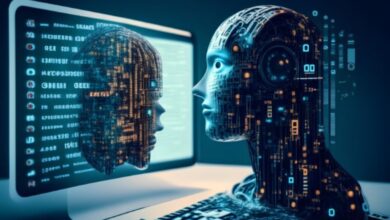“Digital Twin: The Future Revolution in Personalized Healthcare”
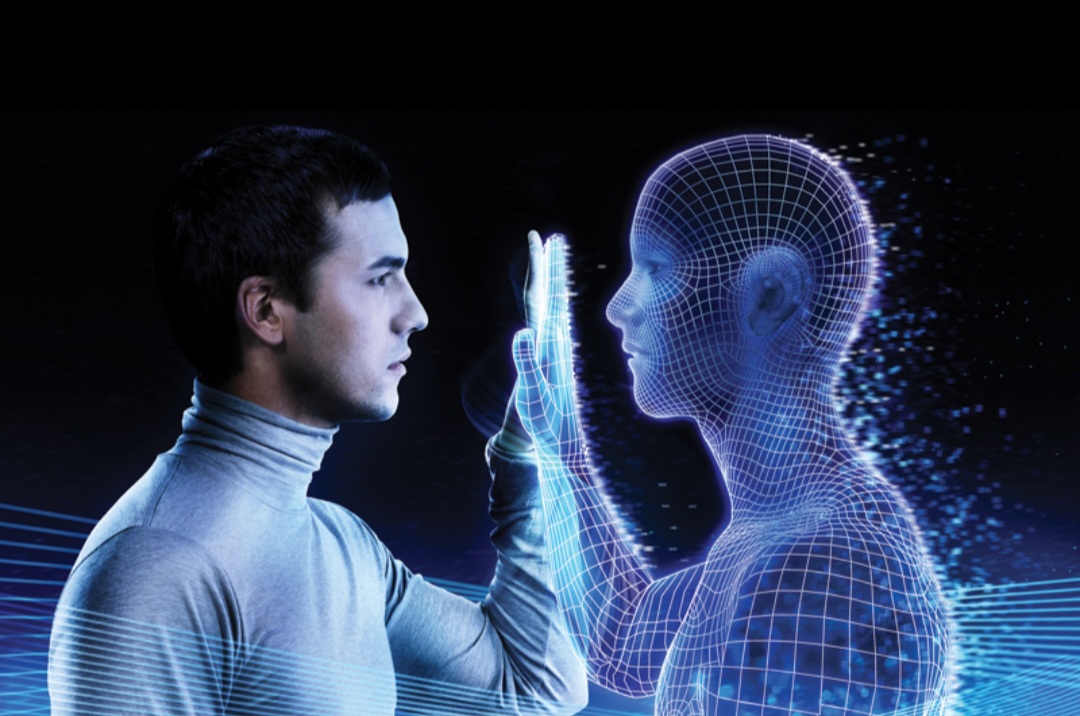
Digital Twin is a modern concept that uses advanced technology to create a precise digital replica representing living or non-living systems, including the human body.
In medicine, the digital twin is a powerful tool that allows for simulating and predicting complex interactions within the body, helping to improve healthcare.
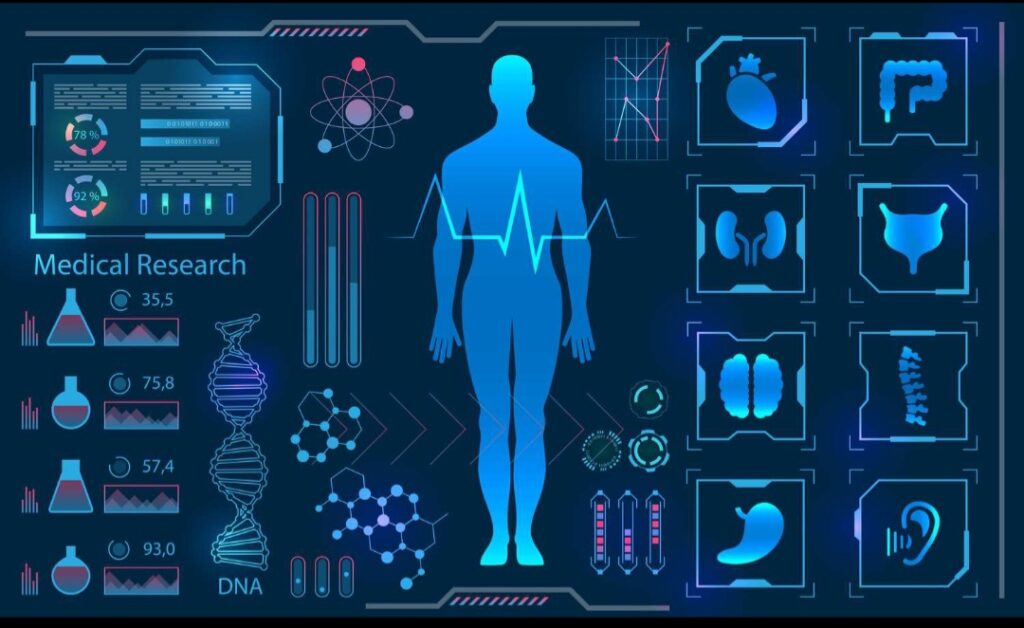
How Digital Twin Works in Medicine:
1. Data Collection:The process of creating a digital twin begins with gathering detailed data about the patient.
This data includes medical tests like CT scans, blood analyses, medical history, and genetic analysis, as well as daily data from wearable health monitoring devices.
2. Creating a 3D Digital Model:Using this data, a 3D digital model of the patient’s body or a specific organ is created.
This model is based on technologies like artificial intelligence and advanced software to analyze the data and produce an accurate simulation of body organs and their functions.
3. Simulation and Analysis:Once the model is created, doctors and specialists can use it to simulate medical and therapeutic procedures.
New medications or surgical procedures can be tested virtually on the digital twin to analyze how the body might react to potential treatment. This helps reduce the risks associated with surgeries or new treatments.
4. Predicting Diseases:By continuously analyzing the data collected, the digital twin can predict health issues before they occur. For instance, it can foresee organ function deterioration or detect the early stages of a disease, enabling early intervention and improving health outcomes.
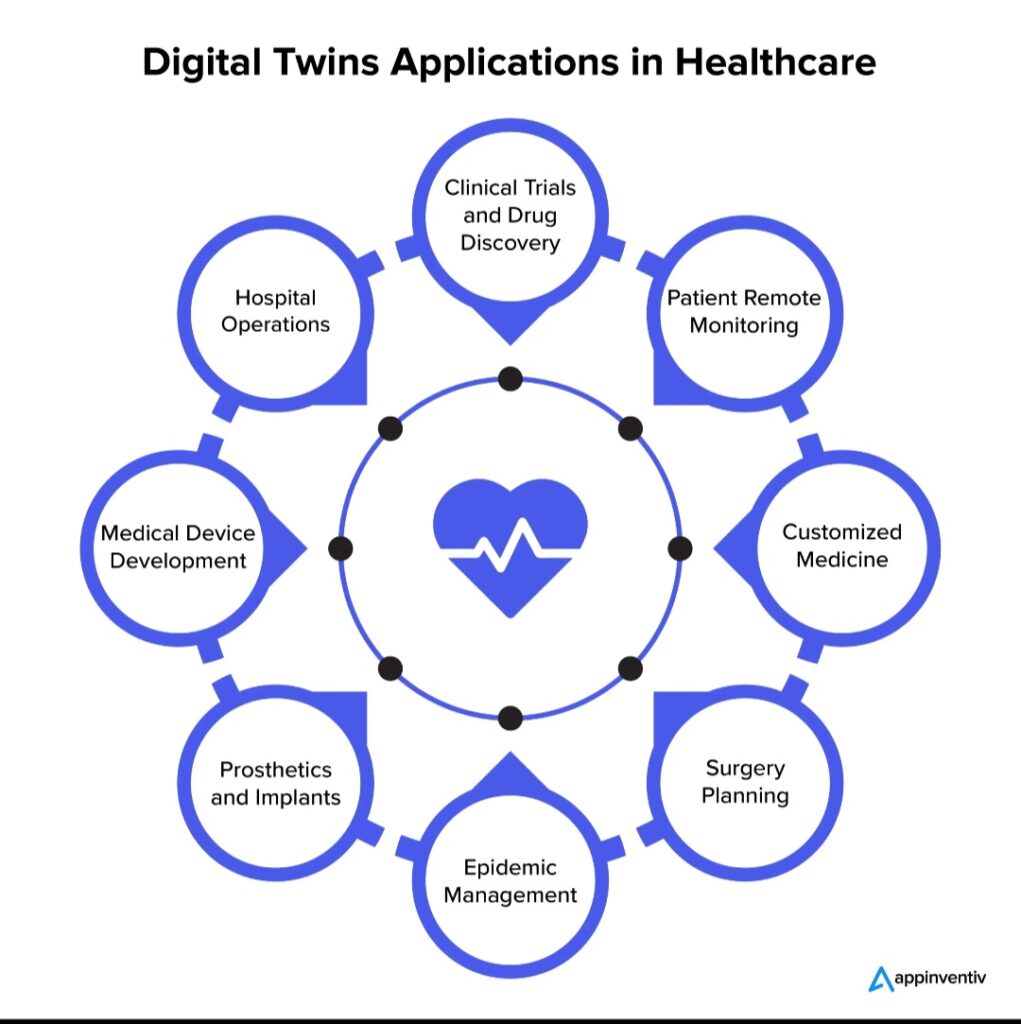
Key Benefits of the Digital Twin in Medicine:
1. Accurate and Personalized Diagnosis:The digital twin can be used to understand each patient’s unique health condition and provide personalized treatment based on their specific circumstances.
This personalized care enhances the effectiveness of treatment.
2. Reduced Surgical Risks:Instead of relying on direct experimentation during surgeries, surgical or therapeutic procedures can be simulated on the digital twin to identify potential risks and optimize results before applying them to the actual patient.
3. New Drug Development:The digital twin can be used to simulate the effects of different drugs on the body, helping to speed up drug development, improve precision, and reduce side effects.
4. Continuous Health Monitoring:With the digital twin connected to wearable health monitoring devices, doctors can monitor the patient’s condition in real-time and analyze any changes occurring in their body.
Immediate responses can be made to any potential health issues.
5. Improved Rehabilitation and Physical Therapy:The digital twin can track a patient’s recovery after surgery or treatment, providing accurate insights into the body’s response to physical therapy and offering recommendations for faster recovery.
Challenges and Future Developments:Despite the significant benefits of the digital twin, there are some challenges this technology faces, such as:The need for vast amounts of accurate data: The process of creating a digital twin requires comprehensive and detailed data, which can be costly and difficult to obtain.
Security and privacy: Since the digital twin relies on sensitive personal data, it is crucial to ensure the security of this data against cyberattacks and protect patient privacy.
Cost: Developing a digital twin is currently expensive, but it is expected that the technology will become more affordable in the future as infrastructure develops.
In the future, the digital twin could become an integral part of healthcare, contributing to improved quality of life and increased life expectancy.
